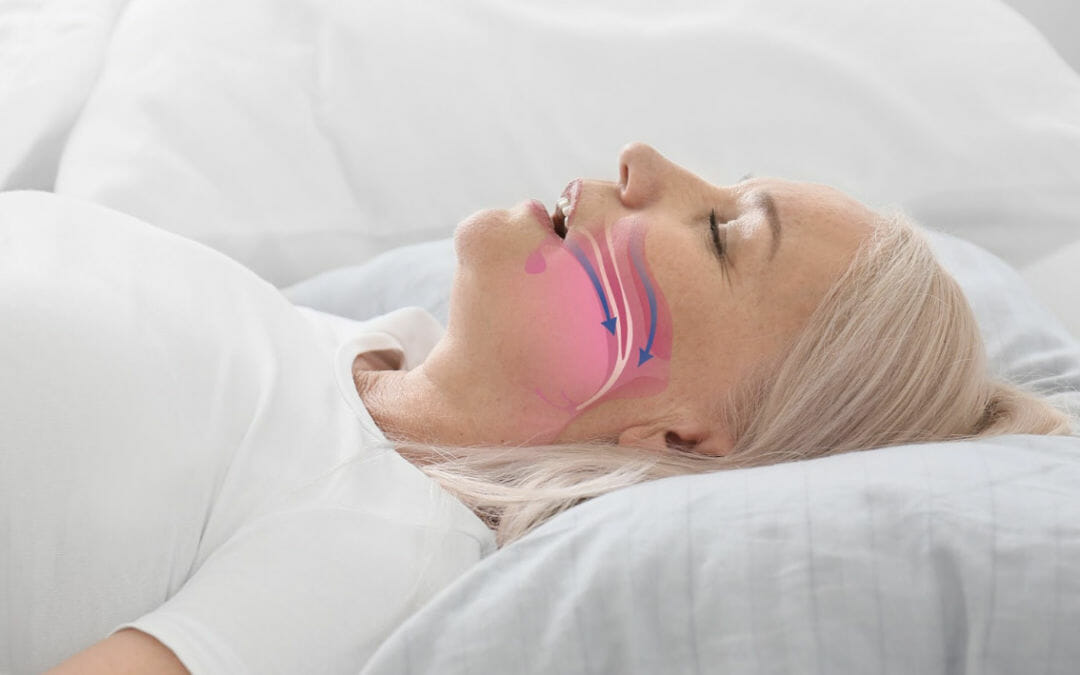Do you wake up feeling exhausted, even after a full night’s sleep? Do your loved ones complain about your loud snoring or gasping for air in your sleep? If yes, then you may be among the millions worldwide suffering from Sleep Apnea. It is a serious disorder where breathing repeatedly stops and starts during sleep. In this blog, we will help you understand what Sleep Apnea is, its signs and symptoms, its causes, and why it is crucial to treat it. We will also discuss different types of treatments available – from lifestyle changes to various surgical procedures – so that you can choose the right treatment for yourself. Don’t let Sleep Apnea disrupt your life any longer!
Understanding Sleep Apnea
Maintaining a good night’s sleep is crucial to our overall health and well-being. Unfortunately, sleep apnea can disrupt our restful slumber, leading to a range of issues from daytime fatigue to increased risk of cardiovascular disease. Understanding the cause and symptoms of sleep apnea is the first step in managing this condition effectively. With various treatment options available, including lifestyle changes, CPAP therapy, and surgery, it’s important to consult with a healthcare professional to determine the best course of action for your specific needs.
What is Sleep Apnea?
Sleep apnea is a sleep disorder that can lead to serious health issues if left untreated. It’s characterized by pauses in breathing or shallow breaths during sleep, and there are two types: obstructive sleep apnea and central sleep apnea. Obstructive sleep apnea is caused by a blockage in the airway, while central sleep apnea is caused by a malfunction in the brain’s signaling to breathe. Common symptoms of sleep apnea include loud snoring, gasping for air during sleep, and excessive daytime fatigue. If you suspect you have sleep apnea, it’s crucial to seek medical advice promptly to receive an accurate diagnosis and appropriate treatment plan.
Signs and Symptoms of Sleep Apnea
Sleep apnea is a sleep disorder that can be challenging to recognize and diagnose. If left untreated, it can lead to numerous health problems, including high blood pressure, heart disease, and stroke. Common signs and symptoms of sleep apnea include loud snoring, gasping for air during sleep, and excessive daytime fatigue. Other symptoms may include headaches, dry mouth, and difficulty concentrating. It’s important to talk to your doctor if you experience any of these symptoms or suspect you have sleep apnea so you can receive appropriate treatment. Fortunately, with lifestyle changes and medical interventions such as CPAP therapy or surgery, most people with sleep apnea can manage their symptoms effectively.
Causes of Sleep Apnea
Sleep apnea can be caused by various factors, but the most common type is obstructive sleep apnea. This occurs when the soft tissue in the throat blocks the airway, causing breathing to stop for a few seconds or more during sleep. Obesity is another common cause of sleep apnea as it can lead to excess fat tissue in the throat and neck area. Alcohol consumption, certain medications, smoking, and even genetics may contribute to sleep apnea. It’s essential to identify and address these underlying causes to manage sleep apnea effectively. Untreated sleep apnea may result in severe health problems such as high blood pressure, heart disease, and stroke.
Lifestyle Changes Recommended for Sleep Apnea Treatment
Making lifestyle changes can help alleviate the symptoms of sleep apnea. One common recommendation is weight loss, as excess weight can put pressure on the airway and worsen breathing difficulties. Incorporating regular exercise into your routine can also improve sleep quality by reducing stress and promoting relaxation. Avoiding alcohol and sedatives before bed is crucial, as these substances relax the muscles in your throat and worsen sleep apnea symptoms. Additionally, sleeping on your side instead of your back can alleviate symptoms by keeping the airway open and clear. Finally, quitting smoking can reduce inflammation and fluid retention in the upper airway, which can lead to improved sleep quality over time.
Talking to Your Doctor About Sleep Apnea Treatment Options
When it comes to treating sleep apnea, consulting with a healthcare professional is key. Your doctor can help you diagnose the condition and determine the best course of treatment for your individual needs. This may involve lifestyle changes such as weight loss and regular exercise, as well as more advanced treatments like breathing devices or surgery. By working closely with your doctor, you can develop a treatment plan that effectively manages your symptoms and improves your overall quality of life.
Conclusion
Sleep apnea is a serious condition that can cause a variety of negative health effects. If left untreated, it can lead to an increased risk of heart disease, stroke, and other health problems. However, there are many different treatment options available, ranging from lifestyle changes to surgical procedures. It’s important to work closely with your doctor to determine the best course of action for your individual needs. Don’t let sleep apnea negatively impact your quality of life any longer. Take action today and explore the different treatment options available to you. To learn more about sleep apnea and its treatments, contact us at Eastgate Dental Excellence today.

